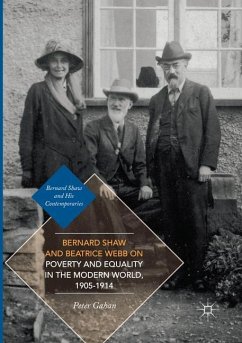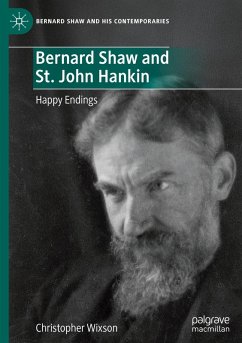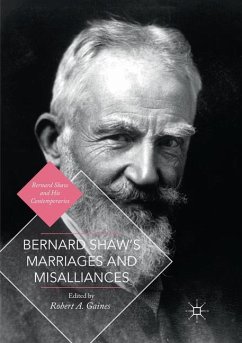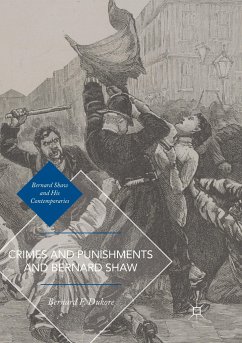
Bernard Shaw's and Virginia Woolf's Interior Authors
Censored and Modern
Versandkostenfrei!
Versandfertig in 6-10 Tagen
91,99 €
inkl. MwSt.
Weitere Ausgaben:

PAYBACK Punkte
46 °P sammeln!
Virginia Woolf and Bernard Shaw may be the odd couple of Twentieth Century modernism. Despite their difference in age (Shaw was twenty-six years older than Woolf), and public demeanor - Shaw sought public attention while Woolf shunned the spotlight - they actively held similar convictions on most of the pressing and controversial issues of the day. This book demonstrates that both engaged in social reform through the Fabian Society; both took public anti-war positions and paid dearly for it; both fought British censorship throughout most of their careers as writers; both sought to strengthen w...
Virginia Woolf and Bernard Shaw may be the odd couple of Twentieth Century modernism. Despite their difference in age (Shaw was twenty-six years older than Woolf), and public demeanor - Shaw sought public attention while Woolf shunned the spotlight - they actively held similar convictions on most of the pressing and controversial issues of the day. This book demonstrates that both engaged in social reform through the Fabian Society; both took public anti-war positions and paid dearly for it; both fought British censorship throughout most of their careers as writers; both sought to strengthen women's rights; and both endeavored to revolutionize their respective art forms, believing that art could bring about positive social change. The main focus of the book, however, concerns how both also created interior authors - characters who write and who either self-censor their own works or highly publicized messages or are censored by their fellow characters. These fictional authors maybe considered reflections of their creators and their respective milieus and serve to illuminate the satisfactions and torments of each famous author during the writing process.












